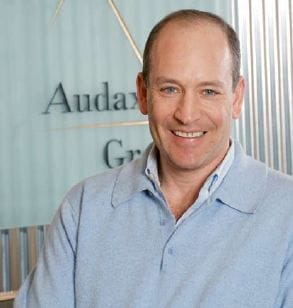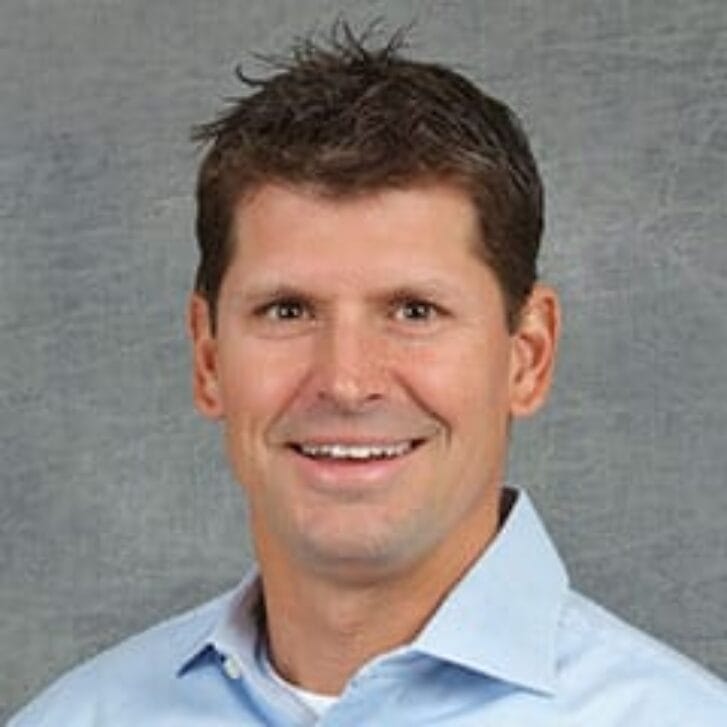“I entered not in Wharton, but in the College of Arts and Sciences,” he says. “I was thinking about pre-med.” Then, his freshman year, everything changed. Wolpow took an accounting class, and he was hooked. He transferred into Wharton the following year.
“Wharton was really my first formal introduction to business,” he says. “It really interested me both academically and as a potential career. I loved being in an environment of business students and faculty, and getting a broad view of the business world at the nation’s leading undergraduate business school. Yet, I knew nothing about any of it before I arrived at Penn.”
For Wolpow—now co-chief executive officer of Audax Group, a leading middle-market private equity firm—that Wharton conversion sunk in deep: In addition to contributing financially to the School, he now serves on the Undergraduate Executive Board; regularly hosts Wharton events in the Boston area, where he lives; and comes back to Wharton about once a year. “Several years ago I got involved supporting the School financially,” he says. “I was reaching a stage in my life where I had the means to give back.”
Wolpow’s road from Wharton to that level of success is easy to track. After his undergraduate career, Wolpow received an MBA from Harvard Business School and a JD from Harvard Law, and went to work on Wall Street. He worked for a year at Donaldson Lufkin & Jenrette, Inc., and spent three years at Drexel Burnham Lambert, Inc., before spending nine years in Bain Capital’s private equity and debt investment businesses, where he served as a managing director. In 1997, Wolpow established Sankaty Advisors, Inc., an affiliate of Bain Capital that invests in bank debt, high yield bonds, mezzanine loans, and special situations.
Then in 1999, he and partner Geoffrey Rehnert started Audax Group, which today manages close to $4 billion in investments in more than 100 companies, primarily in the United States. “They’re all privately held businesses with a wide range—from traditional manufacturing to dental offices to daycare centers to consumer products companies,” Wolpow says. Audax owns outright about half of the companies with which it deals.
“My partner and I run the business and have more than 150 employees who identify good investments, make the investments, and report to us. My job is to hire good people and make good investment decisions.” And his hard work has paid off: When asked what he likes best about his job, Wolpow doesn’t miss a beat before replying with a simple, “Making money.”
“I like when investments are successful, and I don’t like it when they’re not,” he continues. “I get a charge out of investing for a profit. We’ve been successful beyond my expectations, particularly given how difficult this environment is.”
His financial success has enabled him to provide a good life for his family, including his wife, Robin, two teenage daughters, and a 10-year-old son. He is also now able to donate money to the causes and institutions that matter to him, including Wharton. Wolpow recently made a gift to endow a Faculty Scholar Award.
“The Dean is the CEO of the School, and he recommended where I could make a gift that would be most useful,” he says. “I trust it’ll be used to retain young, outstanding faculty—talented faculty who have the potential to become fully tenured professors.”
A desire for others to get the same things out of Wharton as he did is what forms the basis for Wolpow’s ongoing involvement. It’s why he continues to provide Wharton leadership in the Boston area, and why he remains so closely connected to the School.
“My support of the School is based upon my gratitude for the education I received and the direction I received embarking on a business career,” he says. “Without Wharton, I never would’ve gone in this direction. It got me on the right track at an early age, and I’ve been fortunate to see the fruits of that labor. When I started, I didn’t have a penny to my name. But thanks to Wharton, I’ve been very successful.”


























